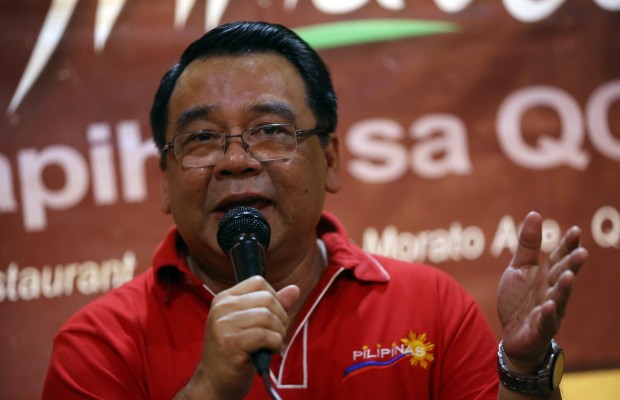
Former representative and Bayan Muna Chairman Neri Colmenares. INQUIRER FILE PHOTO / NINO JESUS ORBETA
The Supreme Court’s order last week suspending the government’s implementation of policies covering retail competition and open access (RCOA) in the power industry could lead to unfair competition, Bayan Muna chair Neri Colmenares warned on Sunday.
In a statement, Colmenares urged the people to take to the streets to protest the high court’s decision to issue a temporary restraining order (TRO) prohibiting the Department of Energy (DOE) and the Energy Regulatory Commission (ERC) from fully enforcing RCOA.
Under RCOA, consumers with monthly average peak demand of at least 1 megawatt can choose and directly negotiate with their own power supplier to get the most competitive electricity rates.
“We call on the people to protest in the streets against this continued attack on consumer rights,” Colmenares said.
“We are particularly alarmed that the TRO has the effect of preventing many power consumers from having a choice of where their electricity will come from and at what price,” he added.
The former Bayan Muna representative said their group might file a petition in the high court to intervene in the case “in order to safeguard the rights of power consumers.”
Colmenares claimed that the decision of the 15-member high tribunal would only favor big electricity distributors such as the Manila Electric Co. (Meralco), which, he noted, has also ventured into power generation.
He called on the ERC to look into reports that Meralco was already “pressuring” its customers to cancel their contracts with other power suppliers following the high court’s ruling.
“We ask the ERC to investigate reported actions of Meralco as these could further stifle any chance of competition, especially since the Supreme Court has not yet decided on the merits of the case,” he said.
On Tuesday, the tribunal prevented the ERC and the DOE from allowing big electricity users to enter into supply agreements with government-accredited power suppliers.